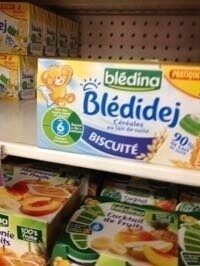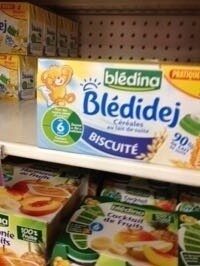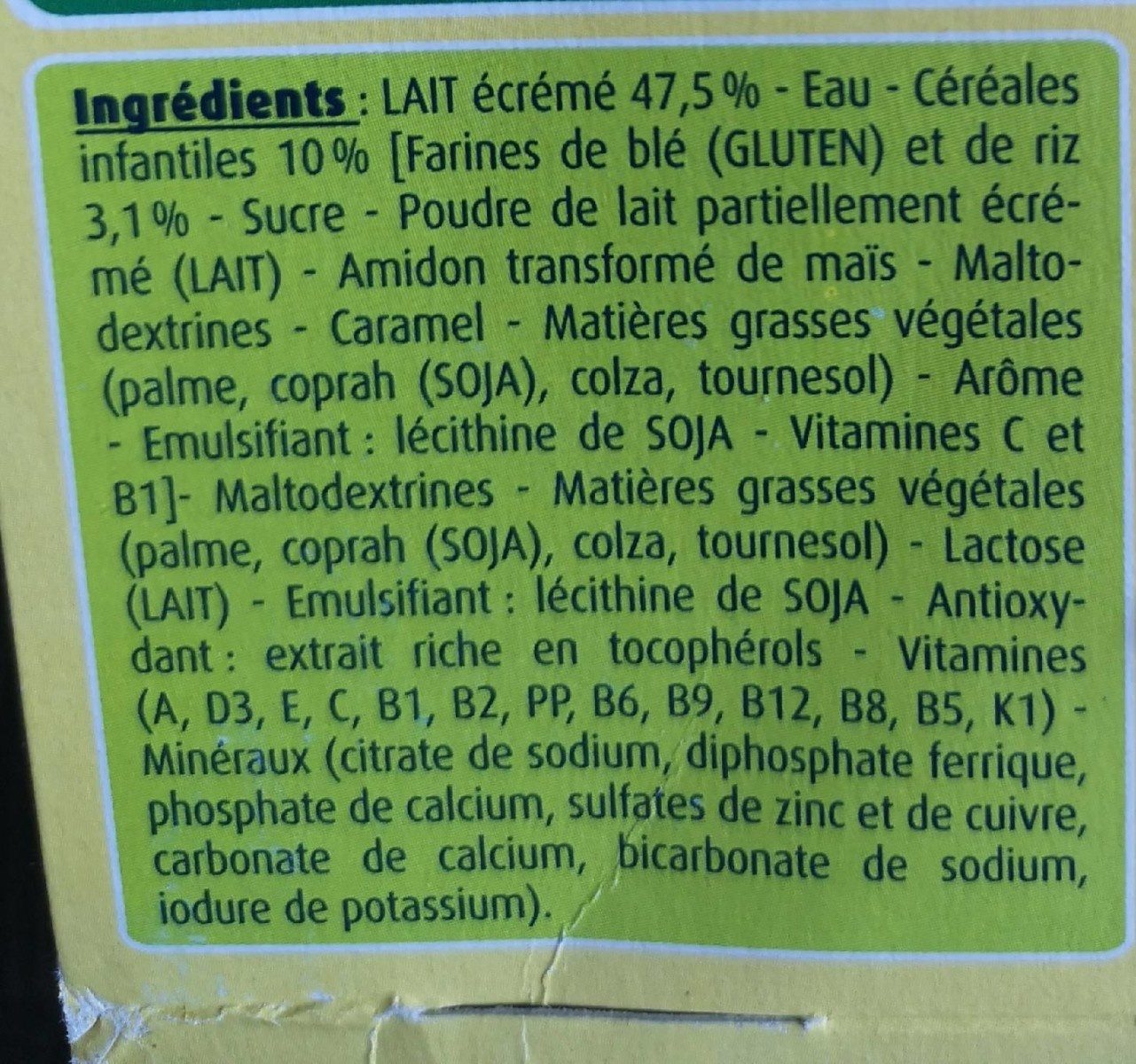Blédidej biscuité - Blédina - 1068 g
This product page is not complete. You can help to complete it by editing it and adding more data from the photos we have, or by taking more photos using the app for Android or iPhone/iPad. Thank you!
×
Some of the data for this product has been provided directly by the manufacturer BLEDINA .
Barcode: 3041090013928 (EAN / EAN-13)
Common name: Céréales lactées aromatisées pour bébés.
Quantity: 1068 g
Categories: Baby foods, Snacks and desserts for babies, Cereals for babies, Dairy dessert for baby, From 6 months
Stores: Magasins U
Countries where sold: France
Matching with your preferences
Environment
Packaging
Transportation
Threatened species
Other information
Preparation: Brique prête à l'emploi ou à consommer tiède. Ne pas faire bouillir, ni chauffer la brique directement au four à micro-ondes. Ne pas ajouter de sucre.
Conservation conditions: Avant ouverture, conserver à température ambiante dans un endroit propre et sec. Après ouverture, à conserver au réfrigérateur et à consommer dans les 48 heures maximum.
Customer service: Service consommateur Blédina, 81 rue de Sans Souci 69576 LIMONEST Cedex
Report a problem
Data sources
The manufacturer BLEDINA uses CodeOnline Food to automatically transmit data and photos for its products.
Manufacturers can use the Open Food Facts free plaform for producers to access and complete this data, and to obtain reports, analysis and product improvements opportunities (e.g. better Nutri-Score).
Product added on by date-limite-app
Last edit of product page on by quechoisir.
Product page also edited by kiliweb, magasins-u, marilyn, openfoodfacts-contributors, org-bledina, tacite, yuka.YjR3SkNiWVB2ZU1Xb2ZNKzEwckUzOEo1Nm8rVGVIbUtHK3RNSVE9PQ, yuka.sY2b0xO6T85zoF3NwEKvlldhYsvRjQPeHS7TtmHR_c6xIa3CUeFLybjGb6s.






